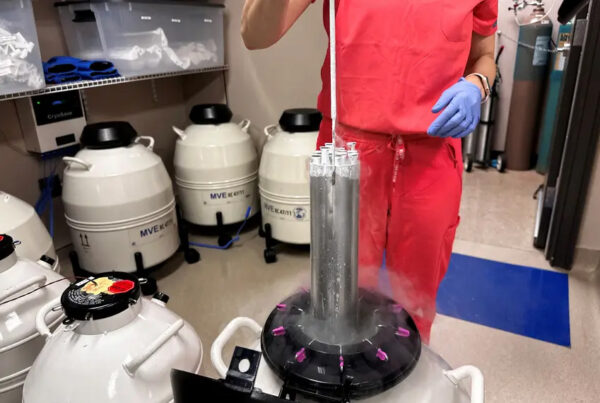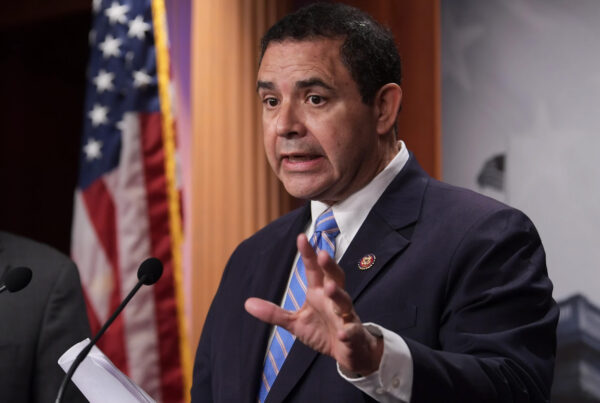From Houston Public Media:
Texas House Speaker Dade Phelan is in the toughest fight of his political life. On May 28, he could become the state’s first speaker in more than half a century to lose a primary.
Phelan is heading into the runoff phase, having trailed his opponent, former Orange County GOP chairman David Covey, by nearly 1,000 votes in the first round of the Republican primary in March. The third contestant in that round, Alicia Davis, has thrown her support behind Covey.
Orange County sits in the southeastern corner of Texas, butting up against the Louisiana border. In the city of Orange, on a sunny Friday afternoon, County Commissioner for Precinct 1 Johnny Trahan recalled a far more dismal day when Hurricane Harvey struck the county.
“The Neches and the Sabine basically merged together,” Trahan said. “We were covered with water. No way in, no way out.”
Trahan said the military brought the county badly needed supplies. But before they did, he says, Phelan was there.
“Dade was really instrumental in arranging some private planes to start flying in supplies to our local airport, and it was the only lifeline we had for a long time,” Trahan said.
Support for Phelan
Trahan’s fellow Republican, Orange County Commissioner for Precinct 4 Robert Viator, echoed the point. Viator was mayor of Vidor when the storm hit.
“The only elected official, including our county representatives at the time, that contacted me every day to see if there was anything we needed, check on us was Dade Phelan,” Viator said. “His knowledge and his expertise in getting resources during a disaster is phenomenal, and I don’t know how we would have survived without him.”
Phelan is the first House Speaker from East Texas, away from the state’s main urban centers, and Trahan said it’s made a huge difference in everything from emergency aid to business investment.
“He’s brought a lot of money to the ports in this area, because these ports are crucial to the economy of Texas,” Trahan said. “And so, we can move more product from the state of Texas out. And from our district’s point of view, when we go meet with different agencies, they’re aware that our representative is the Speaker, and that opens doors for us and at least gets us heard.”
Still, Trahan’s and Viator’s experiences are far from universal.
Support for Covey
“My own personal experience with Dade was the fact that he would not see me. He would not return my calls,” said David Lipko, recently a precinct chair in the Orange County Republican Party. Lipko has since moved to Conroe, but he still sometimes attends party meetings in Orange.
“At the time I was involved in the Republican Party – which was about a year-and-a-half, two-year period – he never made any appearances,” Lipko said. “Even though we were meeting in a building that was owned by him, he never stopped by, which I thought was just kind of disappointing, disappointing that he would be that closely tied to the area but never stop in and even meet with the groups that were there.”
Lipko said he feels that Phelan has failed his constituents, and the state, on several issues. For one, he said, Phelan effectively blocked Gov. Greg Abbott’s version of school vouchers from making it to the House floor last year.
“We pay the taxes and get involved in districts, and sometimes, you get overruled, and the direction you want that district to go isn’t the direction it’s taking your kids,” Lipko said. “And I think it’s a parent’s entire right to be able to pull them out of that school and put them somewhere else.”
Phelan has directed the House Public Education Committee to study how education savings accounts, in which families would use taxpayer funds to pay for private-school tuition, work in other states and recommend how they might work in Texas.
School vouchers essentially on ballot
“The biggest issue, if you had to nail it down to one, in terms of what immediately would change in the Legislature is school choice and school vouchers,” said James Nelson, an associate professor of political science at Lamar University in Beaumont. “Gov. Abbott has come out and said that they are within two votes being able to pass that.”
There’s little doubt that a vote for Phelan’s opponent, Covey, would make House passage of school vouchers more likely. Asked about whether his prospective constituents would be able to afford private school with vouchers, Covey told Houston Public Media, “The money that parents would receive for their children’s education could be put towards private school or purchasing homeschool materials – or parents could choose to keep their children in public school. The key is giving parents a choice.”
Phelan did not respond to multiple requests for comment for this story. But Trahan, who’s a conservative Republican, said he’s seen how this works in other states, and he worries about what it means for his constituents.
» RELATED: May 28 election includes notable Houston-area races
“What it’s essentially going to do, it’s going to take someone who’s already sending their kids to private school and give them an extra $8,000,” Trahan said. “And then, there’s going to be a lot of cottage, homeschool industry that gets a lot of money, and there’s going to be a lot of charter schools that get a lot of money. And it is going to end up crippling some of the public schools here in Texas if we’re not careful.”
Abbott has made electing state lawmakers who will support school choice a major priority, though he’s stayed quiet in the Phelan-Covey contest. But vouchers are far from the only issue at stake for Texas.
“To see a House Speaker, especially of Phelan’s noteworthiness, lose an election would be a profound political earthquake for the Republican Party and really for state politics,” said Brandon Rottinghaus, a political science professor at the University of Houston.
Historic loss in the making?
The last time a Texas House speaker lost a primary election was 1972 during the Sharpstown scandal, a stock-fraud scandal that also took down the sitting governor and lieutenant governor.
Rottinghaus said that a Covey win would be a big step toward electing a much more conservative House Speaker. He noted that Phelan’s relationship with Lt. Gov. Dan Patrick has been notoriously rocky.
“If it’s the case that we see a Speaker of the House who’s more conservative, who’s more aligned with Dan Patrick, then effectively, you’re going to see a lot more of a smooth relationship, and that means probably much more conservative legislation,” Rottinghaus said.
Lipko said that’s why it’s critical that the district’s Republicans choose Covey.
“He stands really strongly with the Republican Party planks,” Lipko said. “He believes in them, and he sees the direction the country is taking and is opposed to a lot of the liberal tendencies and the big spending and the big government.”
One issue where Lipko would especially like to see a change is to make sure the next speaker doesn’t appoint Democrats to chair House committees, to ensure conservative priorities come to a vote of the full House.
“Mr. Phelan is making sure that he’s putting Democrat chairs in front of those committees, so that they don’t ever make it to the floor and don’t ever make it to vote,” Lipko said. “And he’s killed many bills like that through his time as speaker. And I think that’s one of the biggest abuse(s) of his powers that he’s done.”
It’s worth remarking that appointing opposition party members as committee chairs has been a tradition in both houses of the Texas Legislature for generations. It’s also worth noting that Phelan, despite his opponents’ characterization, has helped pass a wide range of conservative priorities, from effectively outlawing abortion to lifting virtually all limits on gun ownership.

The Phelan family name is well-known in the Beaumont area.
Kim Krisberg
Trahan, the Orange County commissioner, said losing Phelan would be bad for everyone in the district.
“If your representative’s the Speaker, and you remove him, and you replace him with a freshman representative who’s going to be in the basement in the annex somewhere down there, he’s not going to have much power or much political savvy to get things done,” Trahan said. “And I think Dade has done a real good job on getting things done for us here in Orange County.”
In addition to Orange County, the district includes Jefferson and Jasper counties. Covey has deep ties to Orange County, but Phelan has even deeper ties to Jefferson. His family has lived there, in Beaumont, for at least five generations. And he’ll need Beaumont voters to show up this month If he’s going to beat Covey.
According to the Texas Secretary of State’s Office, total registered voter turnout in House District 21 during the March primary was just 27%. In Jefferson County, it was less than 23%.
“I think (Phelan’s) best path forward, if he’s going to keep the seat, will be appealing to people who didn’t vote in the first round,” said Lamar University political scientist Nelson, “people who did not vote as Democrats, but also did not vote in the Republican primary the first time.”













